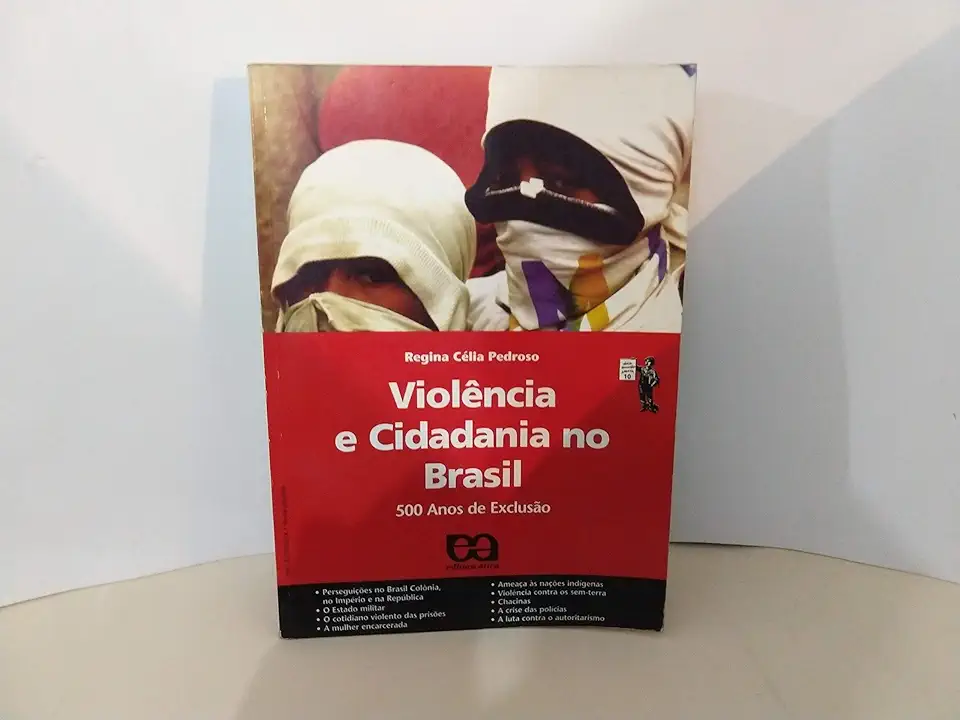
Violence and Citizenship in Brazil - 500 Years of Exclusion - Regina Célia Pedroso
Violence and Citizenship in Brazil: 500 Years of Exclusion
Introduction
In her groundbreaking book, "Violence and Citizenship in Brazil: 500 Years of Exclusion," Regina Célia Pedroso offers a comprehensive and thought-provoking analysis of the deep-rooted history of violence and exclusion that has shaped Brazilian society for over five centuries. Through meticulous research and compelling storytelling, Pedroso uncovers the intricate connections between violence, citizenship, and the formation of the Brazilian nation.
Historical Roots of Violence
Pedroso begins by tracing the origins of violence in Brazil back to the colonial era, when the Portuguese colonizers established a brutal system of exploitation and oppression. The indigenous peoples were subjected to genocide, slavery, and forced labor, while African slaves endured unimaginable horrors under the Portuguese rule. These early forms of violence laid the foundation for a society marked by deep social inequalities and a culture of impunity.
Exclusion and Marginalization
Throughout Brazilian history, violence has been used as a tool to exclude and marginalize certain groups of people. Pedroso highlights the systematic discrimination against Afro-Brazilians, indigenous communities, and the urban poor, who have been denied access to basic rights, education, and opportunities for social mobility. This exclusion has perpetuated a cycle of poverty, violence, and social unrest that continues to plague Brazilian society today.
The Role of the State
Pedroso argues that the Brazilian state has played a central role in perpetuating violence and exclusion. Rather than protecting its citizens, the state has often been complicit in acts of violence, including police brutality, extrajudicial killings, and the militarization of urban areas. This failure of the state to uphold its responsibilities has further eroded trust and confidence in public institutions, contributing to the culture of impunity that prevails in Brazil.
Resistance and Social Movements
Despite the pervasive violence and exclusion, Pedroso also sheds light on the resilience and resistance of marginalized communities in Brazil. She explores the emergence of social movements, grassroots organizations, and cultural expressions that have challenged the status quo and demanded social justice. These movements have played a crucial role in raising awareness about the underlying causes of violence and in mobilizing citizens to demand change.
Pathways to Transformation
In the final section of the book, Pedroso offers a path forward for Brazil to break free from the cycle of violence and exclusion. She emphasizes the need for comprehensive social reforms, including land redistribution, educational opportunities, and the strengthening of democratic institutions. Pedroso also calls for a transformative process of truth and reconciliation, acknowledging the historical injustices and paving the way for a more inclusive and just society.
Conclusion
"Violence and Citizenship in Brazil: 500 Years of Exclusion" is a must-read for anyone interested in understanding the complex social and political dynamics of Brazil. Regina Célia Pedroso's insightful analysis and compelling narrative provide a powerful lens through which to examine the country's history, present challenges, and potential for transformation. This book is a call to action, urging readers to confront the legacy of violence and exclusion and work towards building a more just and equitable Brazil.